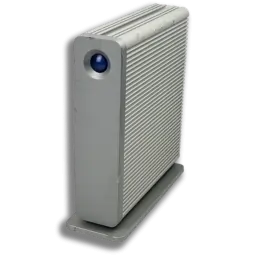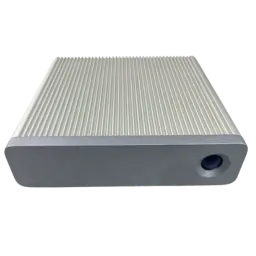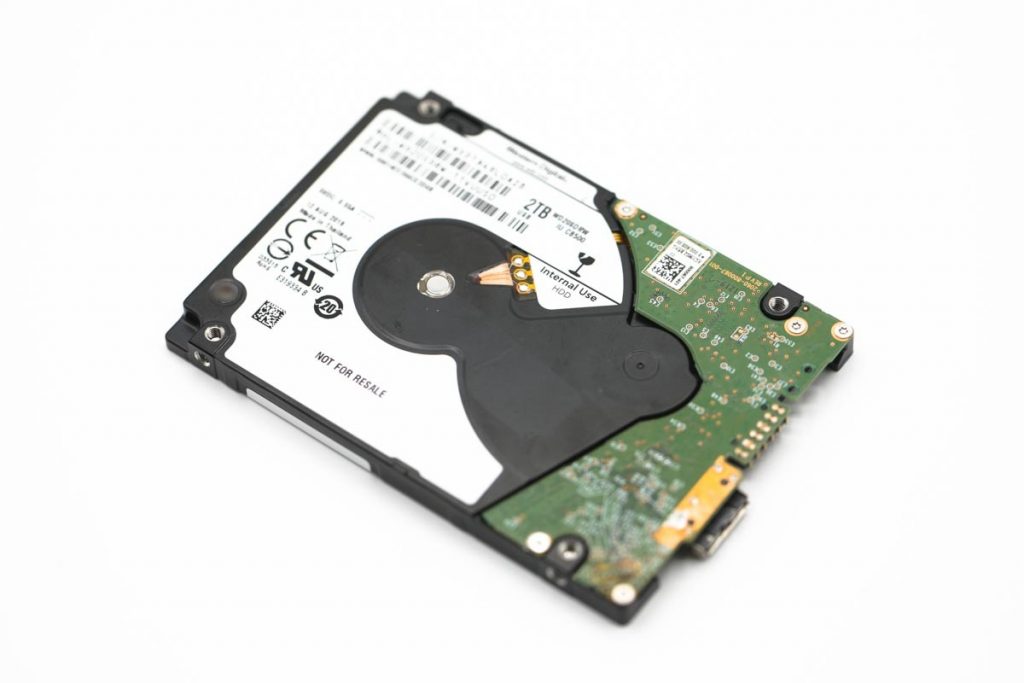A Maine-based video production company faced a critical challenge when their LaCie d2 Quadra device failed. The unresponsive device risked project deadlines, leading them to seek a reliable data recovery service. This case study details how our specialists recovered access to the client’s valuable data stored on the compromised RAID 0 array.
Background of not Recognized LaCie d2 Quadra
Recently, a video production company in Maine state had trouble with their LaCie d2 Quadra device. The company utilized d2 Quadra to manage various demanding professional tasks, such as digital content creation, audio/video editing, and web animation. They were using LaCie d2 Quadra with RAID 0 configuration
When they tried to upload new video files, the LaCie D2 Quadra was not recognized by the system. They tried different troubleshooting methods on the device support website, but none solved the issue.
The urgency of the new project made them search for data recovery options. They did not want to risk the files with DIY recovery. After careful research, they decided to continue with professional data recovery services.

The company checked different data recovery services’ websites, and on one particular website, one of the main features grabbed their attention. RAID Recovery Services offers remote file verification sessions for their customers. This means the client could monitor the recovered data from their location without physically going to the data recovery centre.
Evaluation of Failed Lacie d2 Quadra
After they contacted our customer service line regarding the issue, we provided them with the necessary assistance. We prepared and sent them a shipping label. They packed the failed LaCie d2 Quadra device, ensuring its safe transportation to our specialized lab for further analysis and evaluation.

Once our data recovery specialists received the device, they made an initial diagnosis and confirmed that one of the four drives in the RAID 0 Lacie Quadra configuration had failed.
In RAID 0 level, data is striped across multiple drives, and the failure of a single drive can cause the entire array to become inaccessible.
We reached out to the client to give them a description of the problem. We ensured they understood the failure’s cause and the steps needed for data recovery. Furthermore, we provided an estimate for the data recovery services required to resolve the issue with the Lacie d2 Quadra. The video production company agreed to proceed with our services.
Data Recovery Process of LaCie d2 Quadra
Upon receiving the LaCie d2 Quadra configured in RAID 0, our team immediately began the recovery process. The first step involved examining the failed drive to identify the mechanical issue – a head crash compromising data integrity. Using specialized tools, we cloned the damaged drive to a secure medium, preserving every bit of data for recovery. This approach safeguarded the original data on the LaCie d2 Quadra, setting a solid foundation for subsequent recovery stages.
With the clone in hand, our focus shifted to reconstructing the data striped across the RAID 0 array. This task demanded a deep understanding of the LaCie d2 Quadra’s configuration and the deployment of advanced recovery software designed to weave together the fragmented data into a coherent whole.
The precision of this process was critical, given the lack of redundancy in RAID 0 setups, where the failure of a single drive can spell disaster for the entire dataset.

The final phase involved extracting the reconstructed data and verifying its integrity and completeness. Leveraging our remote file verification system, we engaged with the client, ensuring the LaCie d2 Quadra’s recovered data aligned perfectly with their expectations. This collaborative approach not only underscored the transparency of our recovery process but also reinforced the client’s confidence in the integrity of their salvaged projects.
Successful LaCie d2 Quadra Recovery
Through a combination of technical expertise, cutting-edge tools, and client-focused service, we successfully navigated the challenges posed by the LaCie d2 Quadra’s RAID 0 configuration, restoring access to critical digital content and enabling the video production company to proceed with their creative endeavours without further delay.
We have demonstrated our commitment to excellence and client satisfaction in data recovery services by successfully recovering the LaCie d2 Quadra’s RAID 0 array. Trust our expertise to meet your LaCie data recovery needs. If you encounter similar challenges with data accessibility, reach out to us without hesitation.
FAQ - LaCie d2 Quadra RAID 0 Recovery
What should I do if my computer does not recognize my LaCie d2 Quadra?
If your LaCie d2 Quadra device is not recognized, ensure all cables are securely connected, and the drive is powered. If the issue persists, connect the drive to a different USB port or computer. If the drive is still not recognized, it may indicate a hardware failure, and you should consider professional data recovery services.
Can data be recovered from a failed RAID 0 array like the LaCie d2 Quadra?
Yes, data can often be recovered from a failed RAID 0 array. However, because there’s no redundancy in RAID 0, the entire array can become inaccessible with the failure of a single drive. Professional data recovery services have the necessary expertise and tools to recover data from RAID 0 configurations.
Will I verify the recovered data before it's returned to me?
Many professional data recovery services do not offer while we offer remote file verification sessions that allow our clients to check the recovered data’s integrity and completeness before it’s returned.
Is there any risk to my data if I attempt to recover it from a failed LaCie d2 Quadra?
Attempting DIY data recovery on a failing drive, especially from a RAID 0 array, can put your data at greater risk. This is because unsuccessful recovery attempts can lead to further data loss. It’s generally recommended to seek professional help to maximize the chances of a successful data recovery.
What steps can I take to prevent future data loss on my LaCie d2 Quadra RAID 0?
To reduce the chance of future data loss, it’s advisable to regularly back up important data, use surge protectors to shield against power surges, conduct routine health checks on drives, and avoid physical damage or exposure to environmental elements. Exploring RAID setups with redundancy, like RAID 1 or RAID 5, can enhance data protection.